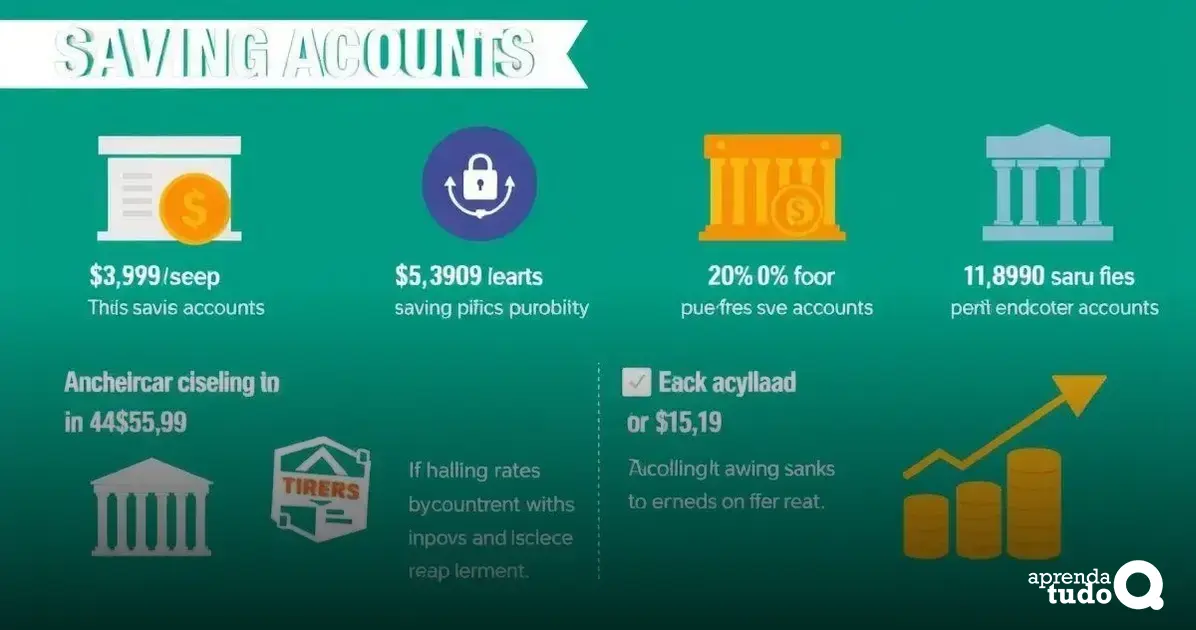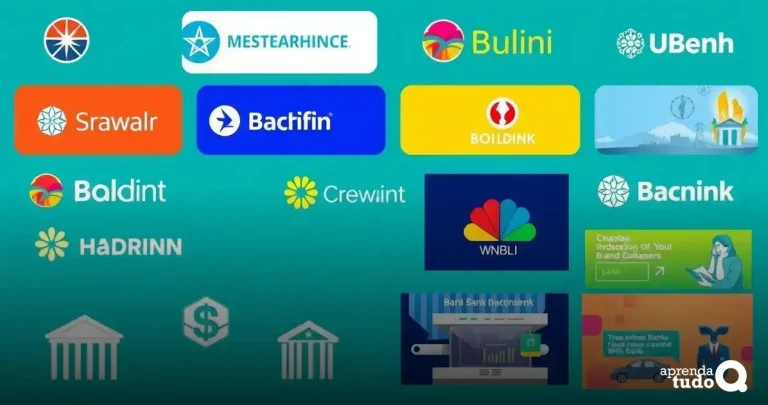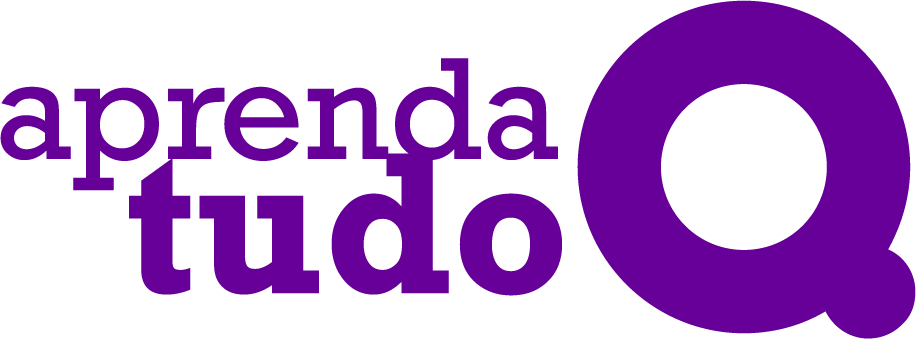Finding the best banking options can be a challenge due to the wide variety of choices available.
From traditional banks to online-only institutions, each offers different features and services.
It’s vital to identify what you truly need in a bank, such as whether you prefer in-person service or the convenience of digital banking.
Consider comparing interest rates on savings accounts, checking account fees, and the accessibility of ATMs when evaluating your options.
Some banks offer higher interest rates for savings accounts, while others might have lower fees for daily transactions, which can significantly impact your finances over time.
Additionally, don’t underestimate the importance of customer service. A bank that is easy to reach and responsive can make a big difference in your overall banking experience.
By doing your research and comparing various options, you can find the best banking choice that suits your personal finance needs.
Finding the best banking options isn’t just smart; it’s essential. Today’s banks offer diverse services that can cater to your specific needs.
Selecting the right bank can improve your financial wellbeing and provide better savings and investment options.
With so many choices out there, it’s crucial to do your research.
Traditional banks, online-only options, and credit unions all have unique benefits. You might be surprised by what you discover.
Best Banking Options Overview
When it comes to choosing the best banking options, it’s important to know what’s available. Various banks offer different services tailored to your needs.
From traditional brick-and-mortar banks to online-only options, each has unique advantages and features.
Online banks often provide higher interest rates and lower fees compared to traditional banks. They do this by saving on overhead costs related to physical branches.
However, some people prefer having a local bank for personal service and easy access to in-person support.
Ultimately, the best banking option for you depends on your financial goals and lifestyle.
It’s helpful to compare services, fees, and customer reviews to find the right fit that meets your banking needs.
Comparing Traditional Banks vs Online Banks
When comparing traditional banks to online banks, services and convenience play key roles.
Traditional banks have physical branches where you can talk to a teller and get face-to-face assistance.
This can be comforting if you prefer personal interaction when managing your money.
On the other hand, online banks offer the convenience of banking from anywhere at any time.
With just a smartphone or computer, you can access your accounts, transfer funds, and pay bills without leaving home.
They also tend to have lower fees and offer better interest rates because they save money on branch-related costs.
It’s important to weigh these options based on your personal preferences. If you value personal service and direct access, a traditional bank may be better for you.
However, if you seek convenience and higher returns on savings, an online bank could be the way to go.
The Rise of Digital Banking Solutions
The rise of digital banking solutions has changed how we manage our money. Many people now prefer to use apps and websites for banking tasks instead of visiting a branch.
With just a few taps on their smartphones, customers can check balances, send money, and even apply for loans.
This shift towards digital banking is also driven by the appeal of lower fees and higher interest rates offered by many online-only banks.
Additionally, these banks often provide 24/7 access to accounts, which is great for those who need to bank outside of regular hours.
As technology continues to improve, digital banking solutions are becoming more secure and user-friendly.
With features like advanced encryption and biometric logins, users can feel safe while managing their finances online.
This accessibility and security make digital banking increasingly popular with customers of all ages.
Best Savings Accounts Available

When searching for the best savings accounts available, it’s important to consider the interest rates they offer. Many banks provide attractive rates to encourage saving.
Online banks often lead in this area, as they typically have lower overhead costs and can pass on those savings to customers.
Account features are also essential to think about. Some savings accounts come with added benefits, like fee waivers, easy online access, and no account minimums.
These features can make managing your savings easier and more convenient, helping you to grow your money over time.
Lastly, it’s wise to check if the bank is insured by the government. In South Africa, your deposits could be protected up to a certain limit by the Deposit Insurance Corporation.
This safety measure allows you to save with peace of mind, knowing your funds are secure while earning interest.
Best Checking Accounts for Daily Use
Choosing the best checking accounts for daily use is crucial for managing your finances.
Many accounts offer features like no monthly fees and easy access to your money through ATMs and debit cards.
This setup helps you avoid unnecessary charges and allows you to spend your money freely and responsibly.
Another important aspect to consider is mobile banking.
Most modern checking accounts provide easy-to-use apps that let you check your balance, transfer funds, and pay bills on the go.
This convenience makes everyday banking much simpler, as you can handle your finances anywhere, anytime.
Lastly, look for accounts that provide perks, such as cash back on purchases or interest on your balance.
These benefits can make your money work harder for you while making daily transactions more rewarding.
Finding the right checking account can lead to a smoother and more enjoyable banking experience.
Exploring Investment Banking Options
Exploring investment banking options can be the key to growing your wealth. Many individuals turn to investment banks for guidance on how to invest money.
These banks provide services like stock trading, asset management, and financial advice, helping you make smart choices.
One common option is mutual funds, which allow you to invest in a diverse range of stocks and bonds. This spreads risk, making it easier for everyday investors.
Additionally, robo-advisors have become popular by using technology to create and manage investments for you at a lower cost.
It’s essential to research different investment banking options to find the right fit for your goals.
Some banks may offer low fees but limited services, while others might have more costly fees with extensive options.
Knowing what you want from your investments can help you choose the best path forward.
Understanding Fees and Charges in Banking
Understanding fees and charges in banking is crucial for managing your money wisely.
Banks often charge fees for services such as account maintenance, ATM usage, and overdrafts.
These fees can vary widely from one bank to another, so it’s important to read the fine print before choosing an account.
Some banks offer no-fee accounts, which can help you save money over time.
However, they might also have certain requirements, such as maintaining a minimum balance or making a set number of transactions each month.
Always compare the benefits and fees associated with each account type to find the best fit for your needs.
Additionally, understanding how interest and fees can impact your savings or loans is essential.
For example, high fees can eat into your savings interest or increase the cost of a loan.
By being aware of these charges, you can make better financial decisions and maximize your banking experience.






